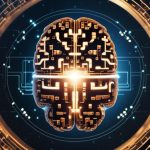Over the past few years, the integration of artificial intelligence (AI) in educational settings has sparked heated debates among educators, parents, and students alike. You may wonder whether AI serves as a revolutionary tool that enhances learning experiences or if it creates chaos in traditional teaching methods. Understanding the implications of this technology is crucial as it reshapes the way knowledge is delivered and acquired. In this blog post, we will explore both sides of the argument, providing insights to help you form a well-rounded perspective on AI’s role in schools.
Key Takeaways:
- Enhanced Learning Experiences: AI can provide personalized learning paths, catering to individual student needs and learning styles, enhancing overall educational outcomes.
- Resource Efficiency: Integrating AI can streamline administrative tasks, allowing educators to focus more on teaching and less on paperwork, leading to improved classroom engagement.
- Equity in Education: AI tools can help bridge gaps in access to resources, ensuring that students from diverse backgrounds receive tailored support and opportunities for growth.
- Teacher Support: Rather than replacing educators, AI serves as a supportive tool, aiding teachers in identifying student challenges and providing data-driven insights to inform instruction.
- Ethical Concerns: The use of AI in schools raises significant ethical questions regarding data privacy, bias, and the digital divide, necessitating careful consideration and regulation.
Understanding AI in Education
While the integration of artificial intelligence (AI) into educational settings may seem daunting, it is crucial to grasp the foundational concepts that underlie its implementation. As you navigate this rapidly evolving landscape, understanding AI’s potential and limitations will help you make informed decisions about its role in your learning environment.
Definition of AI in Learning Environments
With the rise of technology in educational systems, AI can be defined as computer systems that can perform tasks typically requiring human intelligence. In learning environments, this encompasses functionalities such as adaptive learning platforms, virtual tutoring, and even automated grading systems. These technologies aim to personalize education, making it more accessible and tailored to individual student needs.
With AI tools, you can expect a shift from traditional teaching methods toward more dynamic and interactive learning experiences. AI can help you analyze data to make informed adjustments to teaching strategies, improving student engagement and understanding. However, it’s also imperative to recognize that while AI can enhance learning, it does not replace the critical human elements of education, such as empathy and emotional support.
Historical Context of AI Integration
Any discussion about AI in education must start with its historical development. The journey of AI in educational contexts dates back to the 1960s when researchers began exploring the use of computers for personalized learning. Since then, advancements in technology have compiled vast amounts of data, enabling more sophisticated AI applications. As you consider the significance of this historical perspective, it’s important to recognize that today’s AI tools are rooted in decades of research and experimentation aimed at improving educational outcomes.
It is noteworthy that the initial integration of AI was often met with skepticism due to concerns about reliability and effectiveness. Early programs were limited in scope and function, often restricted to rote learning. However, as technology has evolved and AI capabilities have expanded, you now find a wide array of sophisticated solutions that can accommodate different learning styles and preferences, illustrating how far the educational landscape has changed over the years.
Benefits of AI in Schools
Assuming you are exploring the potential of AI in educational settings, it’s important to understand the various benefits that these technologies can bring. From personalized learning to enhanced engagement, AI is positioning itself as a transformative force in your educational journey. These advantages provide educators with revolutionary tools to enhance teaching efficacy and create a more efficient learning environment for students.
Personalized Learning Experiences
For you as a student, personalized learning experiences can make a significant difference in your academic success. AI technology analyzes your unique learning patterns, preferences, and performance metrics in order to tailor educational content specifically for you. This means that if you struggle with a particular concept, the system can offer additional resources, exercises, and instructional methods that meet your individual needs. Personalized learning not only maximizes your strengths but also helps you overcome weaknesses at your own pace, making the learning experience more effective.
Moreover, this individualized approach empowers you to take charge of your education. With AI-driven platforms, you can set your own learning goals and pathways, ensuring that your interests and passions are integrated into your educational experience. This heightened sense of ownership and responsibility can increase your motivation and engagement with the subject matter, ultimately leading to better retention and understanding of the material.
Enhanced Engagement Through Interactive Tools
Benefits of AI-enhanced engagement tools in your classroom can significantly elevate your learning experience. Interactive platforms that utilize AI are designed to captivate your attention and make learning more enjoyable. With gamified learning, simulations, and virtual reality, these tools encourage active participation and foster collaboration among peers, transforming traditional lessons into dynamic and immersive experiences.
The incorporation of AI can also lead to adaptive content that keeps you engaged through real-time feedback and interactive assessments. This kind of immediate response helps you grasp complex concepts with ease, while maintaining your motivation and interest throughout the learning process. As a result, the educational environment becomes more stimulating, which can enhance overall academic performance.
Administrative Efficiency and Resource Management
On the administrative side, AI can streamline resource management and improve the overall efficiency of educational institutions. By automating routine tasks such as attendance tracking, grading, and scheduling, schools can allocate their resources more effectively. This not only reduces the workload on educators but also enables them to focus more on teaching—ultimately benefiting you as a student. Moreover, data analytics can provide school administrators with valuable insights into student performance and resource allocation, allowing for informed decision-making that aims to enhance the learning environment.
Learning institutions can significantly benefit from AI-driven analytics that provide insights into budget allocation and teaching effectiveness. By understanding which programs yield the best outcomes, schools can optimize their investments, ensuring that you receive the highest quality education possible. This integration of technology not only saves time and money but creates a well-managed ecosystem that supports your learning journey.
Challenges of AI in Education
To truly understand the implications of integrating AI in education, it is crucial to examine the challenges that accompany this technological shift. While AI holds the promise of personalized learning and enhanced educational experiences, it also brings forth concerns regarding data privacy, the evolving role of teachers, and equity in access to technology. These challenges must be navigated carefully to ensure that the benefits of AI are realized without compromising vital elements of the educational framework.
Data Privacy Concerns
For many educators and parents, data privacy is a significant concern when it comes to AI in education. With AI systems collecting and analyzing vast amounts of student data, from academic performance to behavioral patterns, the risk of unauthorized access or misuse of sensitive information is ever-present. You may find it unsettling to think about how your child’s data is being utilized, and whether educational institutions have robust measures in place to protect that data from breaches or exploitation.
Additionally, there is the question of consent. Are parents adequately informed about what data is being collected, and how it will be used? Schools may need to implement clearer communication protocols regarding data privacy, ensuring that families are aware of their rights and the security measures in place. This brings to light the importance of creating a transparent environment where you can feel comfortable with the tools and technologies being used in your child’s educational journey.
Teacher Displacement and Role Adaptation
To explore deeper into another challenge of integrating AI in schools, you should consider the potential displacement of teachers and the need for role adaptation. As AI continues to evolve, there is a growing concern that it could replace certain teaching roles, particularly in areas like grading and administrative tasks. This fear may lead to job insecurities among educators, leaving them to grapple with the question of their future relevance in the classroom.
For instance, rather than replacing teachers, AI can serve as an adjunct tool that enhances their capabilities. Educators can leverage AI to tailor lessons to individual learning styles and needs, thereby personalizing education in a way that was previously unattainable. The challenge lies in upskilling teachers to work effectively alongside AI systems. This means ongoing training and support are crucial to help you and your fellow educators adapt to the new landscape of education that AI presents. In this light, rather than fearing displacement, you can embrace the opportunity to redefine your role as educators evolve.
Equity in Access to Technology
For many schools, particularly those in underfunded areas, the introduction of AI can exacerbate existing inequalities in access to technology. Students from lower-income households may lack the devices or internet connectivity necessary to take full advantage of AI-enhanced learning tools. This digital divide raises critical questions about fairness and opportunity in education. You can easily empathize with the frustration that arises when the promise of AI-based learning experiences is not equally accessible to all students.
Plus, addressing equity in access to technology necessitates a concerted effort from policymakers, educators, and technology providers. Schools must advocate for funding and resources to ensure every student has the tools required to thrive in an AI-driven environment. By fostering inclusivity and providing equitable access to technological resources, you can help ensure that the benefits of AI are shared among all learners, creating a more balanced educational landscape.
The Future of AI in Education
Now, as we look ahead, the integration of AI in education is poised to revolutionize how you learn and interact with knowledge. With the rapid evolution of technology, there’s a growing emphasis on tailored learning experiences that adapt to your unique preferences and abilities. From intelligent tutoring systems that analyze your learning style to virtual classrooms equipped with AI-enhanced tools, the future promises an educational landscape that’s both personalized and efficient. Educators are already experimenting with AI-driven platforms that can provide instant feedback and adapt coursework, showcasing just a fraction of what’s to come.
Innovations on the Horizon
The horizon is filled with innovations that have the potential to reshape your educational journey. Tools such as AI-driven assessment software are being developed to not only evaluate your performance but also provide targeted recommendations for improvement. Furthermore, imagine a classroom where augmented reality (AR) is utilized alongside AI, allowing you to immerse yourself in simulations that enhance your understanding of complex subjects. Such advancements will create engaging learning environments, making even the most intricate topics accessible and understandable.
Balancing Technology and Human Interaction
Innovations in AI are designed to enhance educational experiences, but it is crucial to maintain a balance between technology and human interaction. You may find that as AI tools become more prevalent, the risk of diminished human connection in learning environments also increases. While AI has the potential to provide personalized guidance and insights, the mentor-student relationship remains a vital aspect of education that cannot be entirely replaced. Teachers not only impart knowledge but also nurture critical thinking and emotional intelligence, elements that AI currently struggles to replicate.
Human interaction fosters collaboration, encourages discussion, and cultivates a sense of community among learners. As you engage with peers and educators, you’ll find that these interpersonal experiences contribute significantly to your overall development. Thus, while embracing the advantages of AI, it’s important to advocate for educational strategies that combine innovative technologies with meaningful human connections. This holistic approach ensures that you receive a comprehensive learning experience that is not solely reliant on technology.
Summing up
Taking this into account, the integration of AI in schools presents both challenges and opportunities for enhancing your learning experience. On one hand, AI can serve as a powerful tool that personalizes education, offering tailored resources and recommendations that cater to your unique learning style and pace. This has the potential to foster engagement and improve academic outcomes. However, the concerns regarding data privacy, the digital divide, and the potential for AI to render traditional teaching methods obsolete cannot be overlooked. It is crucial that you remain aware of these issues as your educational environment evolves.
Ultimately, whether AI becomes a pandemonium or a panacea for learning hinges on how you, along with educators and policymakers, approach its implementation. By advocating for responsible AI use that prioritizes equity, transparency, and collaboration, you can help shape an educational landscape that harnesses technology to reinforce learning rather than detract from it. Your active participation in discussions about AI and education will empower you to navigate this new terrain effectively, ensuring that technology serves as an ally rather than an adversary in your academic journey.




